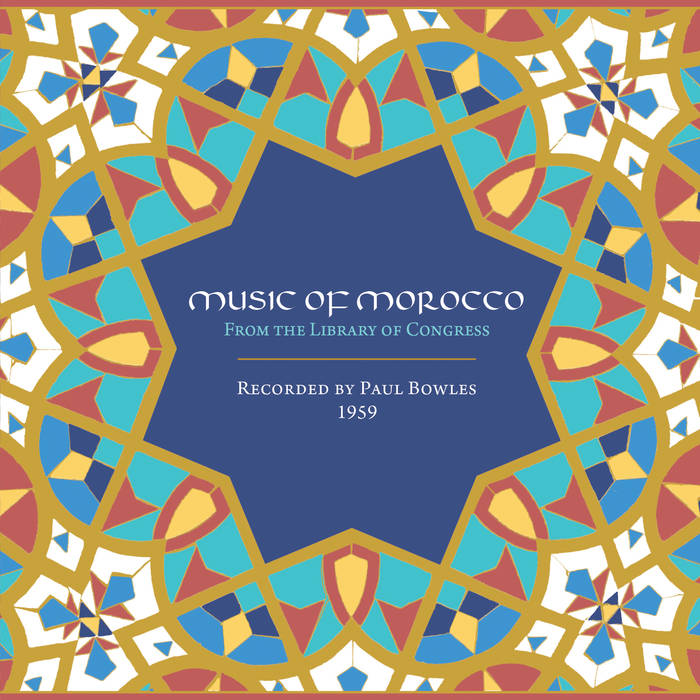About a decade and a half ago, I performed the first of several major purges on my record collection. This was driven more by emotion than practicality: as I recall, I felt so overwhelmed by adult life in general that it seemed absurd, even self-destructive, to be dedicating so much time and space to a silly hobby (now a "career", whatever that may mean). I have a very distinct memory of telling my mother that I did this because recorded music wasn’t "real", that it was "the sound of flowers pressed in a notebook, a reminder that something once was real and is now gone". Ah, out of the mouths of pretentious, anxiety-riddled babes!
Still, younger me was basically right: recording is an inherently manipulative process, where nothing is quite as it seems. Compositions are edited to fit formats; certain sounds are snipped or boosted in post-production. Traditions are walked over in favour of what sounds good on tape. Scratchy recordings of country blues singers are valued for their "purity", even though they were steered more by the desires of their recording engineers than by what the performers felt was their best material (Charley Patton was renowned for playing at wild parties and breaking into proto-rock histrionics, but most of his recordings suggest he could barely pull himself off the floor). Recorded music is a wonderful, groundbreaking technology, but it has long been pushed aside in the public consciousness that it was a technology designed as simulacrum for something else, something that actually happened (or at least, something that could happen).
This is, I think, important to think about when addressing something as remarkable, but easily misconstrued, as the expanded and reissued Music Of Morocco, brought to us by the heroes at Dust-to-Digital. Among the many other things for which he is still renowned, Paul Bowles was a true-blue Moroccan music enthusiast, and put a ton of work into the recordings contained herein. That said, he was no ethnomusicologist, and to treat his recording expeditions as a careful and expansive survey of Moroccan traditional musics would be simply wrong. For better or worse, this is just the Moroccan music that Bowles liked and/or was most curious about, engineered to sound the way he wanted it to sound.
Luckily, lousy taste was not among Bowles’ faults (racial prejudice, maybe: Bowles referred to the Berbers, who made some of his favourite Moroccan music, as "barbarous", "neolithic", and "primitive". He meant it as a compliment, that they were the least tainted by western influence, but it’s certainly the ugliest, most colonialist way to say as much). Music of Morocco doesn’t relate a factual account of Morocco so much as it conjures a story about how Bowles experienced life there, using real performers and performances as material. He makes no claim of fully understanding the ceremonies around the music, and little effort to translate or explain the texts. We thus wander through these recordings in a dream state, a dumbstruck foreign observer ourselves.
That’s not necessarily a bad thing. Music Of Morocco jumps around the country in ways that would be impossible in the physical world, veering gently between the most trance-inducing, celebratory, and heart-rending sounds with little regard to one track’s geographical relationship to the next. It feels something like what many "out" psychedelic lovers probably think they’re doing, a true and explosive feeling from which it is hard to walk away without both mind and heart expanded. Much of the music’s surface monotony, a rich and colourful bloom upon closer inspection, also delivers on the promises of modern minimalism, minus the turtleneck solemnity and plus a couple thousand years of precedent.
As I’ve said, this isn’t the ideal factual document of Moroccan folk music circa 1959 (although it is, by default, probably the best available). Beside the obvious lack of context and real-world circumstance, these recordings are much too coloured by the passions of the man who recorded and compiled it to serve as that. Then again, if not for that man’s passion, there is a good chance that this music wouldn’t have been recorded at all, and an even better chance that it wouldn’t have received its initial truncated release in the 1970s, much less the lovingly, lavishly packaged box set that I hold in my hands now (dedicated trawlers might as well clear off a spot on their year-end lists: this is up there with Revenant’s pitch-perfect 2004 Albert Ayler compendium Holy Ghost). To use any of this against it, though, would do a major disservice to both the listener and the music at hand. It is what it is, and maybe that isn’t perfect, but it’s a damn sight closer than most.


